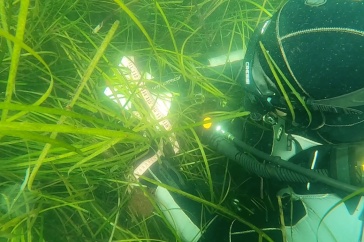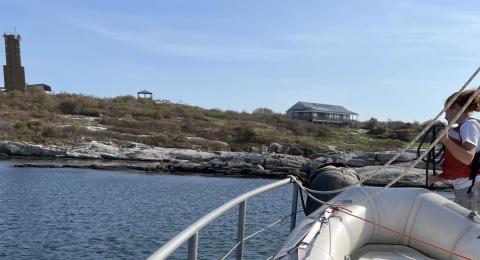Cabled Ocean Observation System
It is often noted that we know more about the planets than the processes of our oceans. A network of ocean observatories is improving our knowledge; however, measurements are still relatively scarce and do not provide enough data to validate and refine models of ocean currents, soundscapes, and biological activity. A cabled acoustic array is being developed for deployment in 2024 in the coastal waters of the Gulf of Maine to complement existing oceanographic monitoring infrastructure. The system will make measurements of the nearshore (6 km) environment and shed light on the connections between coastal measurements and the overall Gulf of Maine environment.
The system is designed to synoptically collect acoustic, oceanographic, and biogeochemical data, while also remaining flexible enough in design to incorporate new sensors in the future. Measurements made with this ocean asset will serve as a baseline for pattern and trend analyses of changing environmental conditions in an area of high productivity, human use, and species diversity. The data management and visualization team are developing an infrastructure to provide public access to the data and its products. Public data access will permit researchers at all levels to advance our understanding of ocean acoustics and oceanographic processes.
Recent News

Five Graduate Students, Alumni Receive NSF Graduate Research Fellowships
Five Graduate Students, Alumni Receive NSF Graduate Research Fellowships
Prestigious STEM award includes stipend, tuition
Article
UNH Scientist Named 2023 Kavli Fellow
UNH Scientist Named 2023 Kavli Fellow
National Academy of Sciences program recognizes outstanding young scientists
Article
Using Passive Acoustic Monitoring and Genetics to Determine Habitat Connectivity in the Gulf of Maine
Using Passive Acoustic Monitoring and Genetics to Determine Habitat Connectivity in the Gulf of Maine
UNH graduate student examines the use of passive acoustic monitoring and genetic testing to determine the connectivity of Gulf of Maine marine habitats
Article
